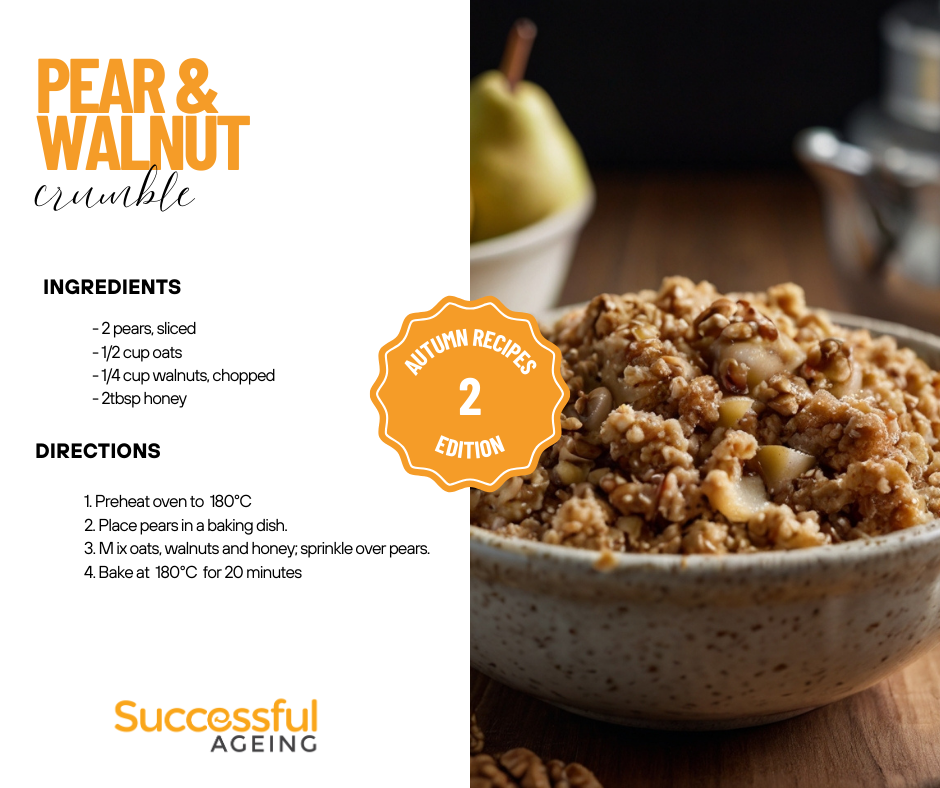Latest News
Latest News

Permission to Stop: What We Want Families to Know About Letting Go of Guilt
May 27, 2025
Because Guilt Isn’t a Love Language – It’s Just Exhausting
Guilt is a Sneaky Little Monster
Let’s talk about something that plagues many families caring for an ageing loved one: guilt. It shows up uninvited, hogs the emotional couch, and whispers things like:
- “You should be doing more.”
- “You should visit more.”
- “You should know how to do this even though you’re not a trained professional and also have three kids, a full-time job, and a leaking roof.”
Sound familiar?
Guilt is the emotional equivalent of stepping on Lego – sudden, sharp and completely unnecessary. And yet, it’s so common in families navigating aged care, especially when support is needed.
Today, we’e handing out Permission Slips:
✅ Permission to stop doing it all
✅ Permission to stop feeling bad about asking for help
✅ Permission to let go of the pressure to be superhuman
Because guilt has not business bossing you around.
The Guilt Myth: If You Loved Them, You’d Do It AllYourself
Let’s squash this myth with the force of a well-aimed orthopaedic show:
Loving someone does not mean doing anything.
Would you ask a cardiologist to fix your care engine because they love driving?
Would you expect a parent to be a full-time teacher, nurse, chef, and Uber driver every single day, without losing the mind?
No? Then why do we expect adult children to become full-time carers because they care?
Spoiler alert: Burnout isn’t a badge of honour. It’s a cry for boundaries.
Why Guilt Happens: The Emotional Recipe No One Asked For
If guilt has an ingredient list, it would look something like this:
- 1 cup of nostalgia (“they used to take care of me!”)
- 2 tablespoons of social pressure (“What will the neighbours think?”)
- A dash of sibling rivalry (“Why an I the only one helping?”
- Several heaped spoonfuls of exhaustion
Mix it all together and you’ve got a burnt-out family member microwaving frozen lasagna while Googling “how to tel Mum she needs hello without crying.”
the truth is, guilt is normal – but it’s not helpful. It often stems from love, yes. But also from fear, unrealistic expectations and societal messages that say “If you really cared, you’d suffer in silence.”
Guess what, You can love your parent and set limits.
Signs You’re Drowning in Guilt Soup
Still not sure if guilt’s got its claws in you? Here are some red flags:
- You feel bad asking for help, even when you’re clearly overwhelmed
- You compare yourself constantly to other caregivers or siblings
- You feel like a failure if your parents needs professional help.
- You cancel your own appointments, events, or holidays out of obligation
- You’re started referring to the aged care system as the “enemy”
If any of these feel familiar, you may might be experiencing what we call “Caregiver Guilt Paralysis.” It’s like regular guilt, but with more back pain and less sleep.
The Funny Truth About Trying to Do It All
Let’s be real: mist of us didn’t take a court called “How to Bathe a Parent, Navigate Aged Care, Manage Sibling Politics and Still Make it to pilates.”
You are learning on the fly. And it’s okay to laugh at the ridiculousness of it all. Like that time you accidentally booked your mom on a physiology appointment a the same time a he weekly Mahjong. Or the moment your dad declared the home care worker “too cheerful” and staged a one-man boycott. Humour doesn’t mean you’re not taking things seriously – it means you’re human.
Here’s What We Really Want You to Know
As professionals who work with families every day, here’s our hot take:
1. You are not abandoning anyone.
Getting support doesn’t mean giving up. It means recognising that care is a team sport. The goal is quality of life – for your parent and for you.
Would your parent really want you sobbing into a cup of instant coffee while trying to manage their medication schedule? No. They’d want you to thrive.
2. Asking for help is a power move, not a weakness.
Letting professionals take care of personal hygiene wound care, medication or even a meal prep frees you up to be what your loved one actually needs: family.
Not the frazzled, exhausted version of family – the one that brings a cuppa, sits down and listens to old war stories.
3. Boundaries are healthy.
It’s okay to say no. To protect your time, your energy and your mental health, You can love someone and say, “I can’t do this on my own anymore.”
If The Rolling Stones Can Still Tour, You can Say No
Look, if the Cher can reinvent herself every decade wear glitter bodysuits and confidently ignore public opinion in her 70s – you can say “no” to things that are draining your soul.
This is your Permission to Stop. Stop apologising for needing to help. Stop pretending you’re fine. Stop thinking you’re failing if you’re not doing everything.
You’re not superhero – and no one’s asking you to be.
Let’s Replace Guilt With These Instead
✅ Gratitude
Be grateful for the time, the stories, the laughs (even the weird ones). Gratitude for small wins builds resilience.
✅ Delegation
You don’t have to be the caption, navigator, cook and deckhand. Share the load, Trust professionals. Let others in.
✅ Self-Compassion
You’re doing the best you can with the knowledge and resources you have. That’s enough.
✅ Support
Whether it’s a therapist, a support group, or your best mate, talk about it. You don’t have to bottle it up.
What Letting Go of Guilt Looks Like in Real Life
- You hire a cleaner instead of scrubbing mum’s bathroom every weekend
- You accept a respite stay so you can go on that long-postponed holiday
- You let a support worker help with showering instead of wrestling with slippery tiles
- You say “no” to daily visits and “yes” to quality time twice a week
- You stop justifying every decision to everyone.
Guilt-free doesn’t;t mean care-free. It means you’ve made peace with doing what’s right, not what’s expected.
Give Yourself a Break (Literally and Figuratively)
You are allowed to be tired.
You are allowed to need help.
You are allowed to love our parent and also love yourself.
Guilt will try to tell you that you’re selfish. But guilt is a terrible life coach. Listen instead to the part of you that says:
- “I need a rest.”
- “I want balance.”
- “It’s okay to let go of what I can’t control.”
Because when you stop being weighed down by guilt, you make space for what matters: connection, laughter, and those beautiful moments that remind you why you’re doing this in the first place.
So here it is – in writing, from us to you:
💌 You have Permission to Stop.





